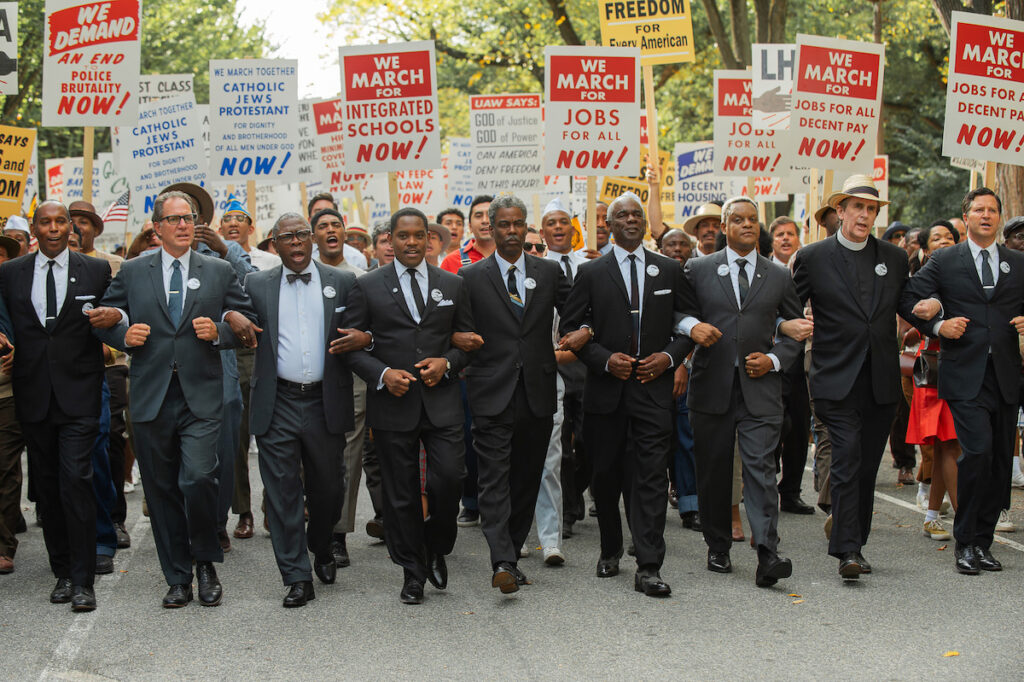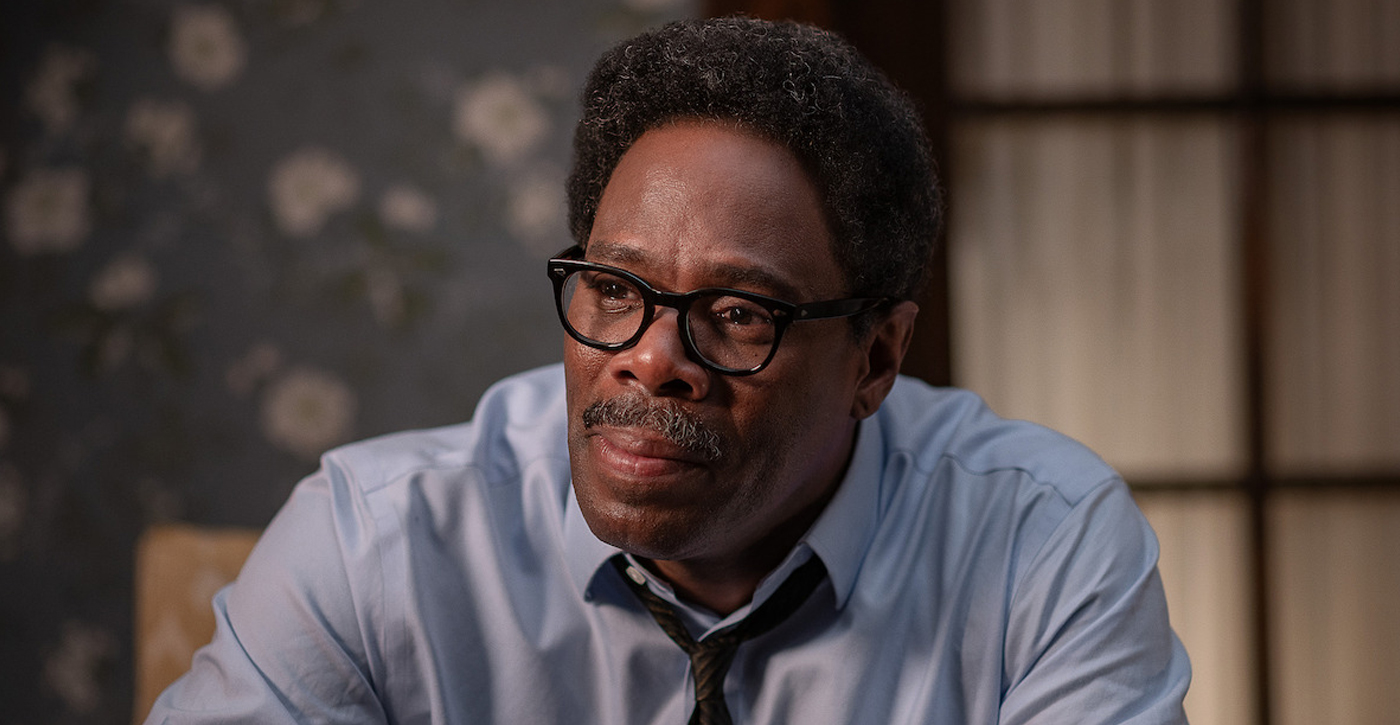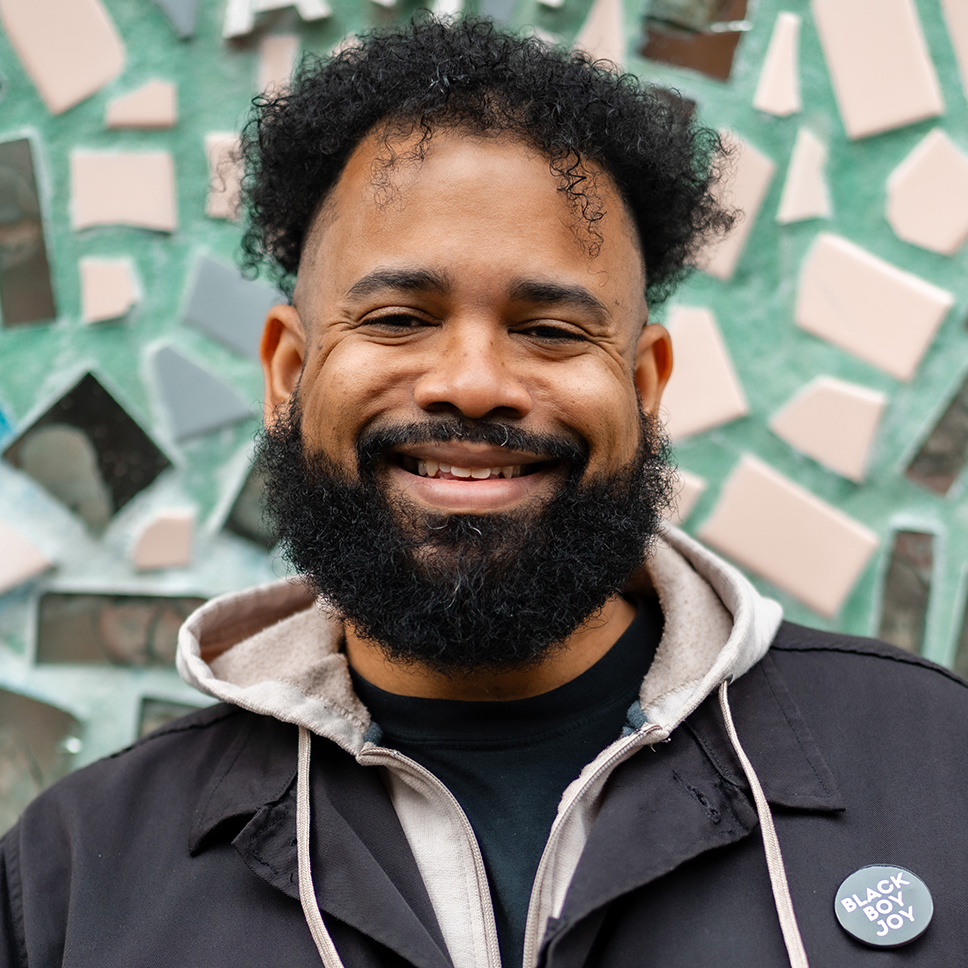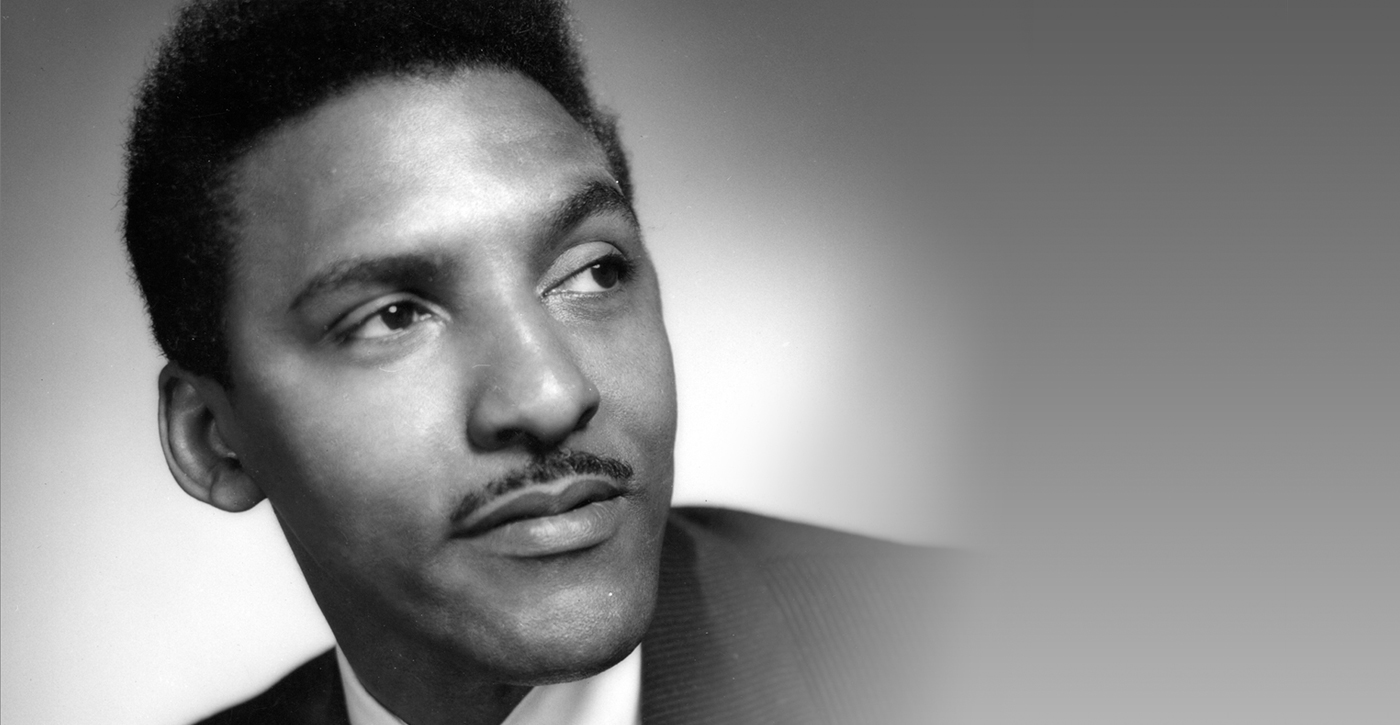Netflix Makes “Rustin” Everyone’s Hero
Rustin (2023). Directed by George C. Wolfe. Screenplay by Julian Breece and Dustin Lance Black, with story by Julian Breece. Produced by Bruce Cohen, Tonia Davis, and George C. Wolfe. Starring Colman Domingo, Chris Rock, Jeffrey Wright, and Audra McDonald. Streaming on Netflix. 108 minutes.
Bayard Rustin was a Black, gay, Quaker social activist who lived for three quarters of the twentieth century. I often call Rustin “everybody’s favorite Black Quaker.” I mean it both literally and sarcastically, because even though Rustin was an objectively great human being worthy of remembrance, he’s also the only Black Quaker many people have ever heard of.
Rustin’s life has always resonated with me, even before I became a Quaker. In learning about the Civil Rights Movement in college, I’d discovered that he was the architect of the 1963 March on Washington: a Black, gay man who the leaders of the day had decided was not an appropriate face for the movement. I’d learned that this exclusionary practice was not uncommon among the largely straight, male-led movement, which had also downplayed the unwed, pregnant teen Claudette Colvin, whose arrest for failure to give up her seat on a bus to a white person predated Rosa Parks’s refusal by nine months.
I recall learning about Rustin, bringing him up during a lecture with history professor Maurice Jackson (author of Let This Voice Be Heard: Anthony Benezet, Father of Atlantic Abolitionism) at Georgetown University, and being sorely disappointed that, among the dozens of attenders, only he and I knew enough about Rustin to engage in a conversation about him. Although history had not quite forgotten Rustin, it seemed like the culture did. Had homophobia won?
Not long after my graduation, I’d learned more about Bayard Rustin: he had been a member of Omega Psi Phi, a historically Black fraternity established at Howard University that counted among its members poet Langston Hughes, historian Carter G. Woodson, and activist Jesse Jackson. This was important for me to learn as a young, openly gay member of another Black fraternity, Alpha Phi Alpha, as there were times where I felt like I was the only gay fraternity brother on earth. Knowing that Rustin had walked the path decades before me gave me a little more confidence to face the trials I would later experience fighting for justice within my own fraternity’s ranks.
Twenty years ago, a documentary called Brother Outsider: The Life of Bayard Rustin, from filmmakers Nancy Kates and Bennett Singer, helped me learn even more about the man’s background, politics, and strategies. However, despite the documentary, books, and common knowledge of Rustin in Quaker circles, it seemed to me that he would still eventually be all but forgotten, eclipsed by the legacies of leaders and thinkers like Martin Luther King Jr., Malcolm X, and James Baldwin.
Luckily, there was one more trick up the universe’s sleeve. On Friday, November 17, 2023—coincidentally the founders’ day of Rustin’s fraternity—Netflix premiered the biopic Rustin on its streaming service. (It had formally premiered at the Telluride Film Festival on August 31 and in a limited number of theaters on November 3.) I watched it shortly thereafter.
The film opens with reenactments of scenes from the Civil Rights Movement: a sit-in at a lunch counter in Jackson, Mississippi; Ruby Bridges skipping to school, flanked by escorts and marshals; and a member of the Little Rock Nine being harassed by white school mates. Then, the single word: “Rustin,” underlined in red. If it wasn’t clear before, it’s clear now: we have been transported to a different era that is still familiar to us.
The pacing of Rustin is faster than I expected, but because it is fast, it brings the audience up to speed quickly. The key players are established early, as is the absurdity of homophobia and racism. We see Rustin’s friendship with Martin Luther King Jr. unfold and then devolve early—making for a sweet payoff later when they ultimately reconcile.

Once a generation, a Black Hollywood project comes along with an all-star cast. Roots (1977), The Wiz (1978), Harlem Nights (1989), New Jack City (1991), Black Panther (2018), and The Harder They Fall (2021) are all examples of films and TV series with highly sought-after roles for Black actors. Such films are coveted because of the relative rarity of an all- or mostly-Black film with a decent budget. This one was also co-produced by Academy and Emmy Award-winning Higher Ground Productions, the production company established by former President Barack Obama and former First Lady, Michelle Obama. The company has, since 2018, established a reputation for high-quality programming of substance, making their productions highly attractive to actors.
Leading the cast is Colman Domingo, the openly gay actor known for his Emmy Award-winning turn as Ali on Euphoria and an upcoming role as Mister in the musical film version of The Color Purple. There has been much written and debated on whether straight people should play queer roles. I don’t know where I land on the topic, but I am glad that this gay actor portrayed this gay character. Domingo embodies Rustin with the same depth and gravitas that Denzel Washington gave Malcolm X in 1992. There were times where I forgot that this was not a biography at all—Domingo is Bayard Rustin.
The supporting cast is similarly inspired, with many familiar actors portraying the greatest names of the Civil Rights Movement and their contemporaries: Audra McDonald as Ella Baker, Chris Rock as Roy Wilkins, CCH Pounder as Dr. Anna Hedgeman, Jeffrey Wright as Adam Clayton Powell Jr., Bill Irwin as A. J. Muste (a Quaker minister), and the great Glynn Turman as Asa Philip Randolph. Each of these actors fills the scenes in which they appear with intensity and solemnity. The lesser-known actors hold their own, as well. Aml Ameen as Martin Luther King Jr. and Maxwell Whittington-Cooper as John Lewis are especially memorable.
The filmmakers took creative license in the creation of Elias Taylor, a closeted gay preacher who is involved in the more conservative faction of the Civil Rights Movement. Rustin and the very heterosexual and married Taylor take an immediate shine to one another, providing the film with romantic and dramatic tension. Although a fictitious character and series of events with a predictable resolution, the invention of Elias Taylor serves to show Black queer love on screen and provide another voice for forgotten people of the movement: those fighting for racial equality while still not having recognition of their full, authentic selves.
Domingo, as Rustin, mentions several times throughout the film that he is a Quaker: a fact that most Friends today would likely be pleased with. There is, however, no depiction of him participating in any Quaker community. I don’t believe this is necessary to the story at hand whatsoever. In fact, Quakers who decide to see this film could learn a valuable lesson from Rustin and his efforts to connect with others despite differences: a major part of his journey toward the March on Washington is how he learns to engage and re-engage the various factions of the Civil Rights Movement, particularly the ever-splitting youth-led factions, a generation that Rustin had not been part of for years. Also familiar to Friends may be Rustin’s battle with his elders. Much like Generation X finds itself in between Quaker youth culture and a Baby Boomer-led power structure, so too does Rustin navigate being in between two centers of power and energy.
The artistic choices in Rustin are sound: from the fitting wardrobe to the accurate hair and make-up. This is not a civil-rights-era cosplay but an artistic backward step through time with meticulous attention to detail. Just as the acting made me feel as though I were witnessing a recorded glimpse into Bayard Rustin’s life, the realistic details kept me there, as though I were one of his peers.
Musically speaking, I appreciated that the soundtrack and the score made sense for the time period. A trend has recently emerged where period films will inject contemporary music to disastrous results. Luckily, this is not so for the 108 engaging minutes of Rustin. Especially powerful was the music played during the scenes leading up to the March on Washington. Even though Lenny Kravitz’s simplistic rock ballad during the end credits was not truly of the era, it, too, served its purpose of taking the audience from 1963 to the present day as updates about Rustin’s life flash on screen.
As a film, Rustin captures the idealism, practicality, and politics of the 1963 March on Washington and the Civil Rights Movement writ large. It depicts the social isolation and fear of being an openly gay man during that tumultuous epoch. It also, importantly, captures the joy of the era: the time in between protests that is punctuated with love, laughter, music, and strategy.
Bayard Rustin is a hero—unsung no more—who belongs to all of us: Quakers, Omegas, Black people, HBCU graduates, peace activists, Americans—everyone. His story has now been told on one of the widest possible platforms, reaching all generations. May his story continue to inspire and change us for the better.





RUSTIN is a fine film: good focus on a good and courageous American; much to learn about being a Quaker.
I appreciate Darden’s insightful comment.